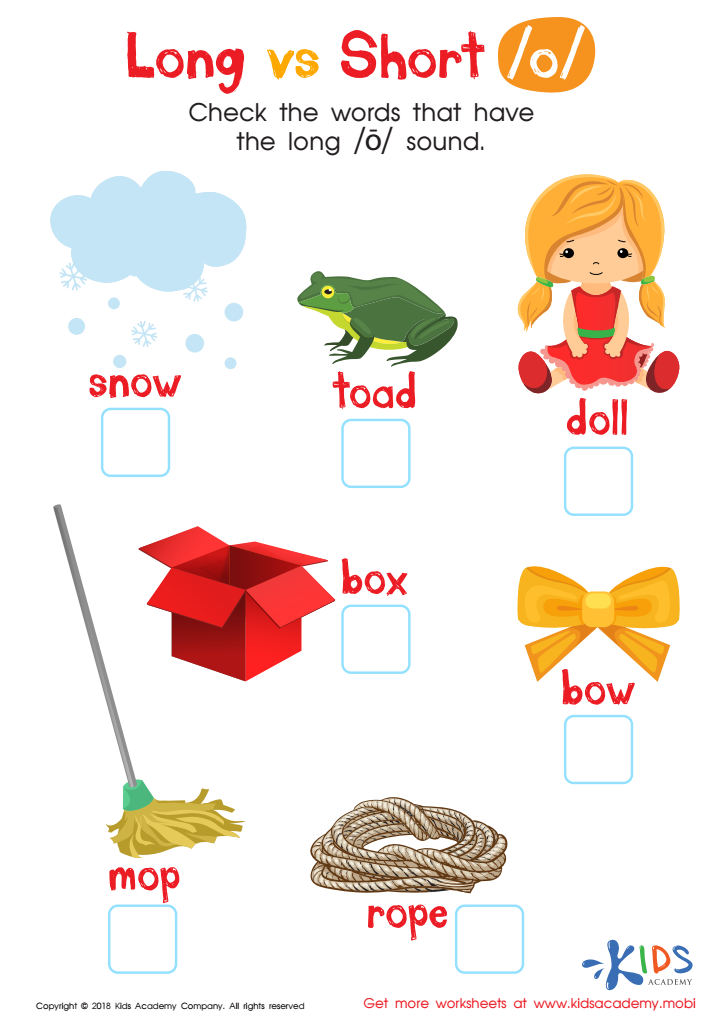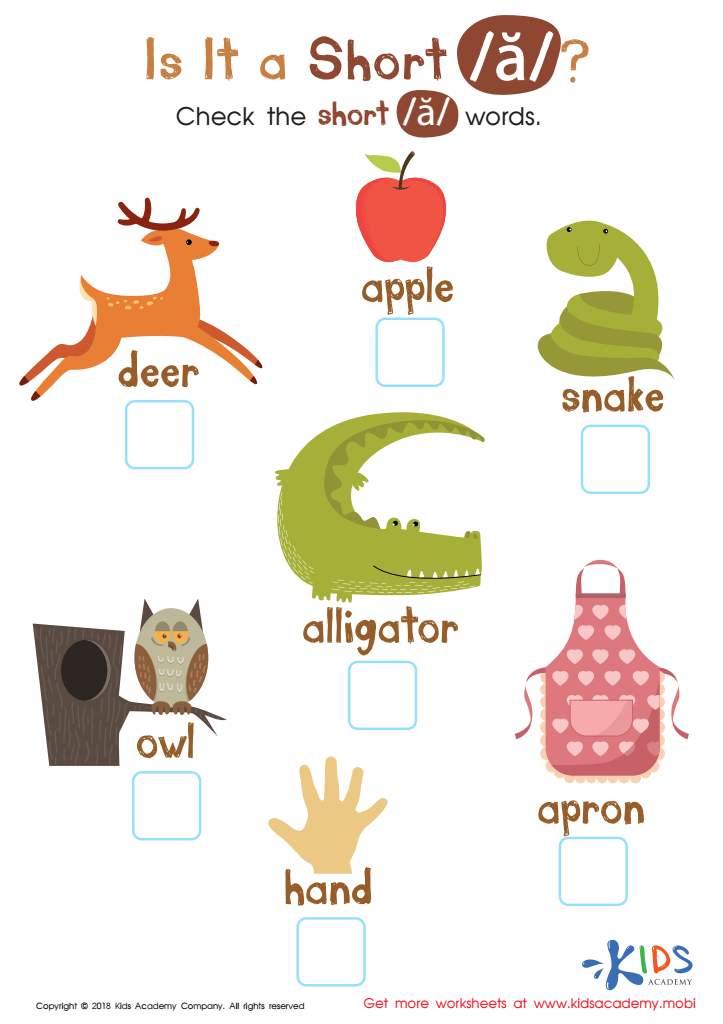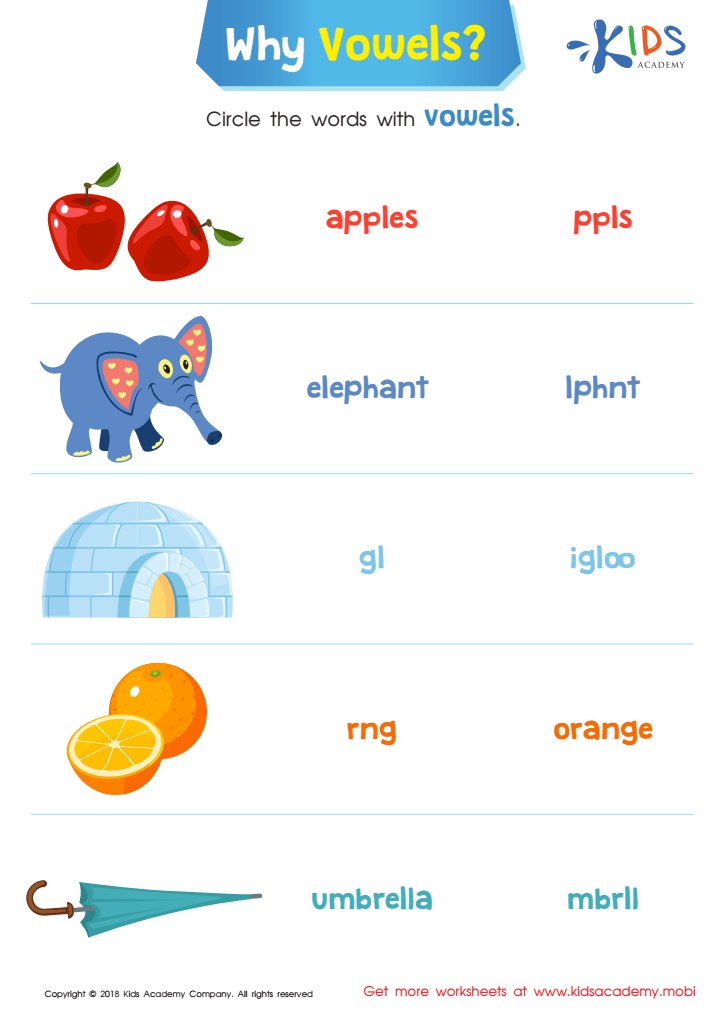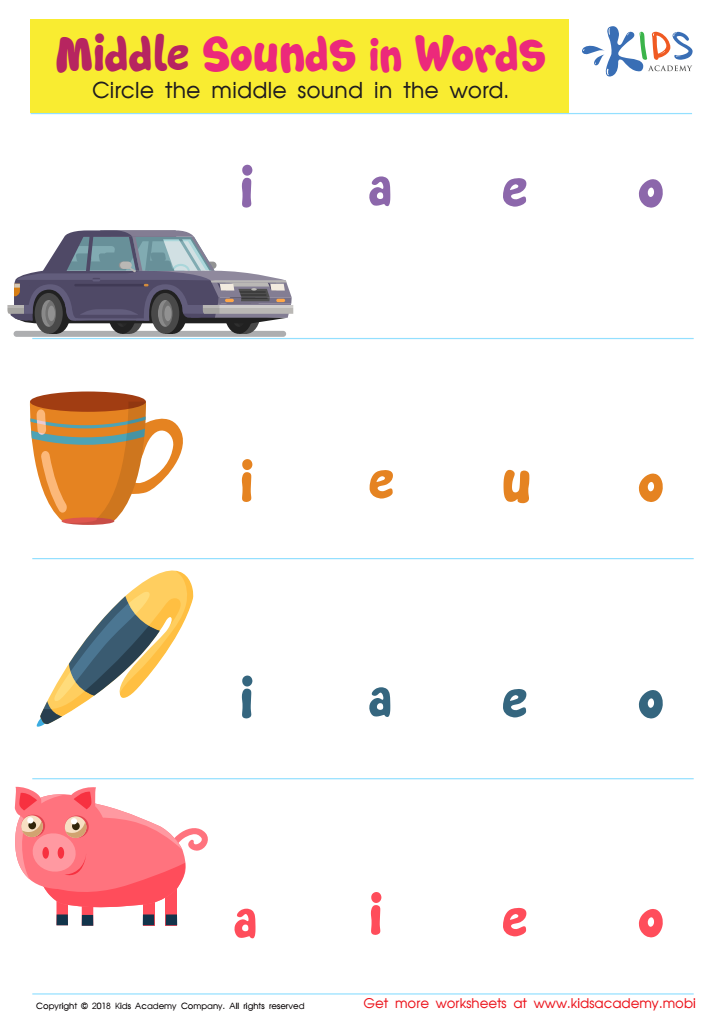Vocabulary development Vowels Worksheets for Ages 4-6
5 filtered results
-
From - To
Enhance your child's vocabulary development with our engaging Vowels Worksheets for ages 4-6! Designed to make learning fun, these worksheets focus on the importance of vowels in expanding vocabulary and improving literacy skills. Each worksheet is tailored to help young learners identify and use vowels effectively, fostering their reading and writing abilities. Our colorful and interactive activities encourage creativity and retention while building a strong foundation in phonics. Ideal for homeschooling or supplementary use, these exercises ensure your child gains confidence in their language skills. Discover the joy of learning with our carefully crafted resources, perfect for curious minds!


Long vs Short O Reading Worksheet


Vowel and Consonant Sounds: Assessment Worksheet


Is It Short A? Reading Worksheet


Why Vowels? Reading Worksheet


Middle Sounds in Words Worksheet
Vocabulary development, particularly in understanding vowels, is crucial for children aged 4-6 because it forms the foundation of literacy and effective communication. Early exposure to vowel sounds helps young learners recognize patterns in language, aiding their ability to decode words and enhance their reading skills. As vowels are fundamental to word structure, mastering them paves the way for children to broaden their vocabulary and become stronger readers.
Parents and teachers play a vital role in this developmental process. By incorporating playful and engaging activities, such as phonemic awareness games or vowel-themed storytelling, adults can foster a love for language in children. These practices not only make learning enjoyable but also solidify the child’s understanding of how vowel sounds function in words. Moreover, a robust vocabulary supports cognitive development and social skills, allowing children to express themselves clearly and confidently.
Investing time in vocabulary and vowel development can yield long-term academic benefits. It can notably increase their prospects for success in subsequent reading and writing tasks, ultimately setting the stage for a lifelong love of learning. Thus, nurturing vocabulary skills, especially connected to vowels, is essential during these formative years.

 Assign to My Students
Assign to My Students















